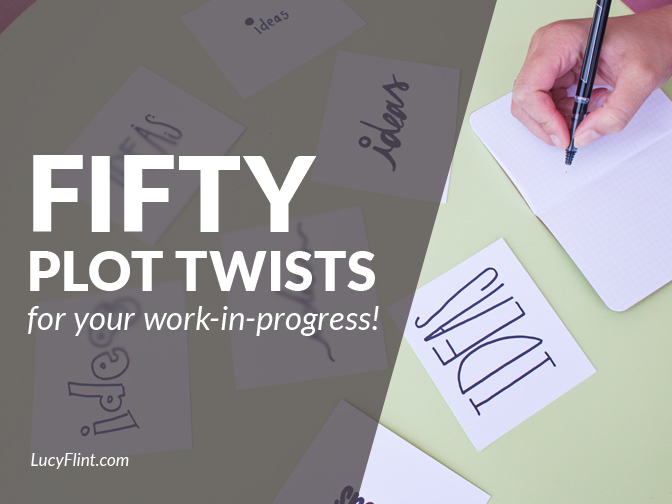Kicking Out the Negativity (So We Can Fall in Love with Writing!)
/How are you feeling, lionheart? How were the first three days of the challenge for you? (If you're new to this series on Falling in Love with Your Writing Life, check out the first post right here.)
My hope is that we're all shaking out some of the negative feelings we've carried around about writing. That we're shining some light on them, and scaring them out of their dark corners.
For the rest of this week, I'm hoping we can either squash them, or at least send 'em skittering on their way.
(Is anyone else thinking about roaches right now, or is that just me? Ahem.)
Sound like a plan? Cool. I'm excited.
Okay, here are the prompts for the rest of the week...
February 4: Write a letter.
There's something downright magical about writing a letter. Something about that format, that invitation to be honest.
Today, we're writing two letters. One of them is from you to your writing life. And in the other, the writing life will be writing back to you.
(Just go with me on this.)
TODAY'S CHALLENGE: Take a little bit of time, and write a letter to your writing life. And begin by saying: "Dear Writing Life, I'm afraid that you will..."
And then go from there.
Tell it all the things that you're worried about in your writing life. All the fears you have—the big ones, and the really really little ones. Everything you'd try to dismiss if someone asked about it. The things that maybe embarrass you.
No one's going to read this—except your Writing Life, and it probably already knows all this anyway.
Dig deep. And be as honest as possible. Get it all down.
Because, seriously, you don't need those thoughts just scampering loose on their own in your mind. Grab them, drag them into the light, and pin them onto the paper with words.
Whew.
Then, write that second letter. The Writing Life is going to write back to you, and answer your fears.
It can't guarantee things that it has no control over (audience response, family response, critics, money, fame). But there are a lot of other things that it can promise. There are a lot of wonderful things that it can give in return. And there is a lot of courage in it, just waiting for you.
The writing life is really wise. It's been around a long, long time.
Give it a chance. Listen hard. And see what it writes back to you.
February 5: Let's redefine "bad" writing days.
I recently came across this idea from Rachel Aaron, and I absolutely love it.
She explains that difficult writing days—days where our imaginations seem to go on strike, where the words won't come, or where we can't seem to get to our desks—are actually telling us something important.
And—spoiler alert—it isn't telling us that we're lazy, unmotivated, undisciplined, stupid, ignorant, blah blah blah.
That's not what bad writing days mean at all.
She says: "Instead of treating bad writing days as random, unavoidable disasters to be weathered, like thunderstorms, I started treating them as red flags."
She realized that they meant: Her story had gone in the wrong direction.
Or, that she didn't actually love what she was writing about.
The most effective way to get back into writing, to be writing with joy, was to fix those problems. Whatever they were.
Which did NOT mean: beating herself up.
Isn't that an incredible shift? Such a game changer.
She comes from the point of view that maintains: Writing is enjoyable. Telling stories is fun.
This writing life is an inherently good thing, which means that, if it doesn't feel good, something's gone wrong.
And that something isn't you.
You're not the problem!! Isn't that a lovely thought?!
TODAY'S CHALLENGE: Maybe you haven't had a bad writing day in months; or maybe you're having one right this second.
Either way, let's practice shifting our focus. Let's take it for granted that a bad writing day doesn't mean anything bad about you, the person, the writer.
Actually, you're great. Let's just all accept that.
And it doesn't mean that the writing life is a terrible, stingy, horrific machine of punishment for the unsuspecting.
Nope. The writing life is great too.
Instead, let's assume that something else is going on.
Let's assume that a bad writing day is more like seeing the first few symptoms of flu show up.
It really doesn't help to be angry at ourselves for catching it. It doesn't help to rail against immune systems having a momentary weakness and letting those germs grow.
All that really matters is that partnership between Human and Immune System, and blasting those germs together. Yes? Yes.
The same thing goes for tough writing days. It isn't your fault, and it isn't the writing life's fault. Something else is amiss.
Today, take fifteen minutes and list everything else that might be contributing to a bad writing day for you. (If you're not having a bad one, think back to the last one you did have.)
What else is going on? Maybe it's external, non-writing stuff. Maybe you don't have enough energy.
Or maybe something's gone off in your work-in-progress. Do you love the subject? Has something shifted? Did you lose an element that made you happy?
What is your absolute favorite thing to write about? Have you lost track of it, in this story, in this bad writing day?
You get the idea. Probe around. Try to find out what might have gone wrong.
Keep reminding yourself: it isn't you. It isn't the writing life.
Instead, explore what might have happened together, and play around with ideas for how to get it back on track.
February 6: Discover the best true advice.
I don't know about you, but when I'm in the midst of a problem, I can be totally blind to something I already know.
But if someone I care about goes through the same thing—I become a fount of wisdom. I have legitimately helpful things to say.
Sometimes we don't have the right words for ourselves. Sometimes, we find them when we help other people.
TODAY'S CHALLENGE: On your best day, on your absolute best day, when you are your wisest, happiest, kindest, and most content self... what would you tell someone else about the writing life?
Imagine that you're describing it to someone who hasn't really tried it on yet, but someone that you think would be an excellent fit. Someone who you know will be a good writer and will thrive... but who needs your nudge to get started. Someone you genuinely want the best for, and you believe that that's the writing life.
How would you sum it up?
What true things would you say about what the writing life has meant to you? What is it really like, this pursuit of words? What can your friend expect? What will she find?
Write it down. Write as much as you like. Try to write for about ten minutes, if you can.
Then look over your words, and choose a sentence or a phrase that really sums up what you've written down, and copy it separately onto a little sticky note.
And above your sentence, write: "This is what I REALLY think about writing."
And then post it in your writing area.
Those are your words. Your real definition of writing. And it's true.
Steer by it. On days when you're tempted to be frustrated at writing, let your own words remind you of what you really believe.
February 7: Enjoy the reward of reading.
TODAY'S CHALLENGE: This is what we're going to do every Sunday this month. We're going to find about half an hour and we're going to read something lovely.
That can mean whatever you want it to. Grab a favorite novel or a new one. Find some really excellent non-fiction, or a book of letters, or poetry. (Mary Oliver and Billy Collins are my favorites!)
Or dive into some kids' books. Because language always sounds better after Dr. Seuss has been playing with it.
All I want you to do is make some space, and fall into a pile of words.
Without envying the writer's skill. Without even a whisper of comparison.
Enjoy the words simply because you enjoy them. Let them transport you.
Let yourself love the reading life with absolute abandon.
Because the reading life is always our way back to a truly wonderful writing life.
I hope this first week of prompts goes really well for you! Feel free to leave comments on how it's going, and please do share with anyone who might love this too!
Ready for more? Get the next prompts right here!
















